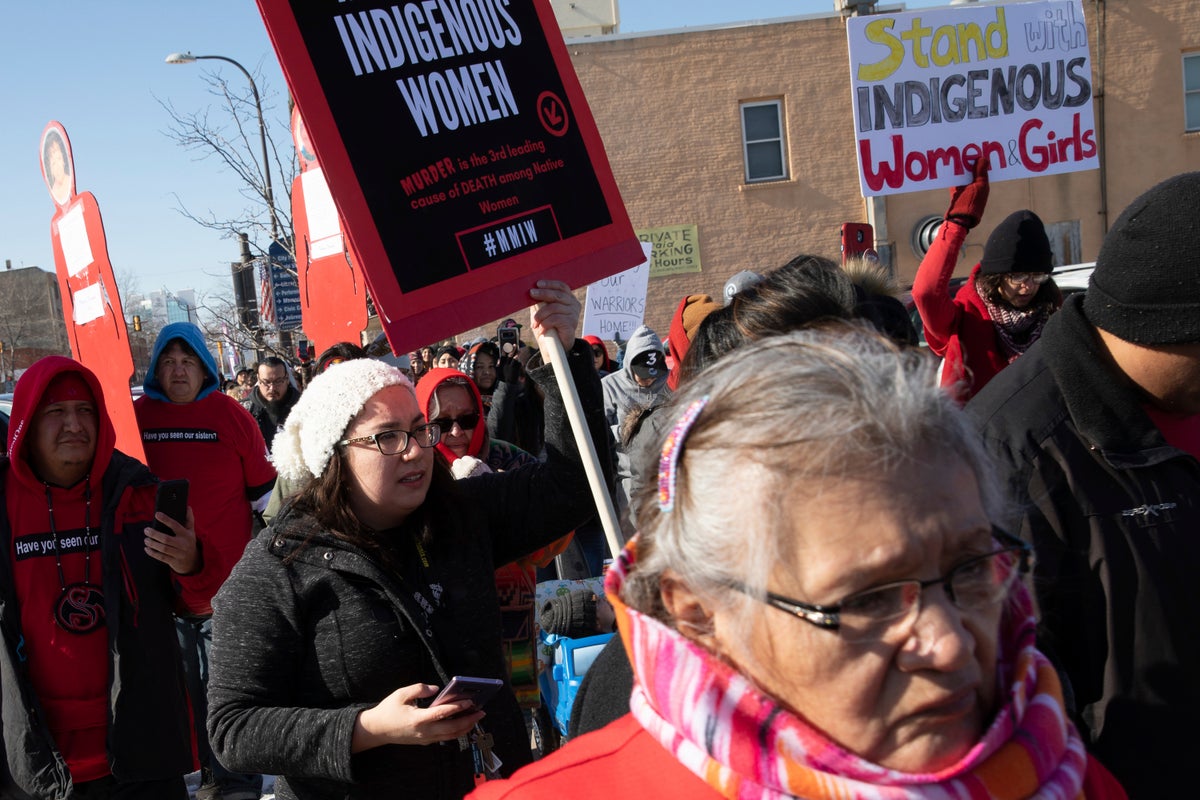
A federal judge has ruled that the U.S. government has a treaty obligation to support law enforcement on the Pine Ridge Reservation in South Dakota, but declined for now to determine whether the Oglala Sioux Tribe is entitled to as much funding as it's seeking.
Tribal leaders depicted the ruling as a victory, saying the important point is that the court confirmed that the federal government has a duty to fund policing on the reservation and ordered U.S. officials to meet with Oglala Sioux leaders “to work together promptly to figure out how to more fairly fund tribal law enforcement."
The outcome of the case could affect other reservations, including some where Native women are killed at a rate more than 10 times the national average. The Northern Cheyenne Tribe in Montana has filed a similar lawsuit.
Oglala Sioux officials contend the tribe is entitled to federal funding for 120 fully equipped officers for the sprawling Pine Ridge Reservation, something the federal government has disputed.
“This Court concludes that the United States has a treaty duty unique to the Tribe to provide protection and law enforcement cooperation and support on the Reservation. ... However, the Tribe has not shown at this stage that a duty extends to entitle the Tribe to the level of funding or support that it sought,” U.S. District Judge Roberto Lange said in an order filed Tuesday.
The tribe sued the Bureau of Indian Affairs and some high-level officials last July. The court held a two-day hearing in February.
The government denied having any such obligation and asked the judge to dismiss the lawsuit.
Lange directed the Bureau of Indian Affairs to help the tribe refine its funding requests “as soon as practicable” to reflect its treaty obligations. He also told the federal government to reevaluate its census-based population estimates for the reservation of 19,800 to 32,000, which are lower than the tribe’s figure of 40,000. The judge said the federal estimates likely represent an undercount.
Oglala Sioux President Frank Star Comes Out and Public Safety Chief Algin Young called on the government in separate statements to provide the tribe with the resources it needs to tackle the public safety and humanitarian crisis on the reservation. If the government fails, Star Comes Out said, the tribe “will look forward to proving at trial that the United States has violated its treaty obligations.”
Officials from the U.S. Bureau of Indian Affairs did not immediately respond to a request for comment Friday.
Lange's ruling gave a dire depiction of crime on the more than 5,400-square-mile (14,000-square-kilometer) Pine Ridge Reservation, which is about the size of Connecticut. He noted that it's among the most impoverished places in the country.
“In recent years, communities on the Reservation have struggled with dangerous and highly addictive drugs and experienced unprecedented levels of violence and threats to public safety," he wrote. “In the Tribe’s view, a lack of competent and effective law enforcement on the Reservation is a big reason for the crisis.”
At any given time over the last several years, Lange wrote, the tribe has only had funding to employ roughly 33 police officers and seven criminal investigators to cover all of its 911 calls. In 2021 alone, nearly 134,000 calls were made to 911 on the reservation, But at any given time, he said, only six to eight, and sometimes fewer, tribal police officers are on duty to respond. So many calls are abandoned or not properly investigated, he said, that many crimes go unprosecuted.
While neither side disputes that crime is “very high” on the reservation and that its police are underfunded, the judge wrote, the federal government insists "that the funding is fair given budget constraints and Congress’s decision to underfund law enforcement services in Indian country generally.”
Across the country, Native American tribes have increasingly advocated through the courts for treaty rights, including hunting, fishing and education, with some success.
Lange concluded that the “express language” of the 1868 Treaty of Fort Laramie, when read in conjunction with other treaties and federal laws, “imposes some duty on the United States to provide law enforcement support on the Pine Ridge Indian Reservation. The contours of that duty is a more difficult question.”







